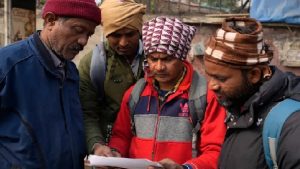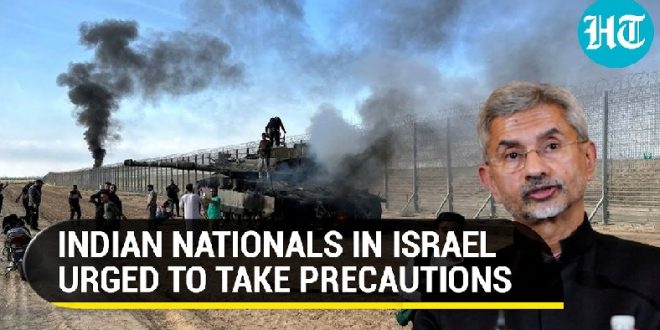07-03-2024
NEW DELHI: India’s embassy in Israel has advised its nationals in Israeli border areas to move to safer parts after a missile attack near the frontier with Lebanon killed one Indian citizen.
 The warning, issued on the embassy’s X account on Tuesday, advertised helplines offering further advice to citizens. Thousands of Indian workers have been hired to replace Palestinians blocked from entering Israel since the outbreak of the war in Gaza.
The warning, issued on the embassy’s X account on Tuesday, advertised helplines offering further advice to citizens. Thousands of Indian workers have been hired to replace Palestinians blocked from entering Israel since the outbreak of the war in Gaza.
The advisory specified that the embassy was in touch with the Israeli authorities “to ensure the safety of all our nationals” following the death on Monday.
The Indian’s death was confirmed in a statement issued on X by Israel’s embassy in New Delhi.
The attack, which the embassy claimed was carried out by Hezbollah, struck workers cultivating an orchard in the Israeli village of Margaliot. Two other Indians were reportedly injured, along with at least five other foreign workers.
The Indian Express newspaper identified the dead victim as a 31-year-old from the town of Kaikulangara in the southern Indian state of Kerala. He had reportedly moved to Israel two months ago to work on a farm in Margaliot.
Israeli construction companies have reportedly requested that the government in Tel Aviv allow them to hire up to 100,000 Indian workers to replace Palestinians whose work licences were suspended after the Gaza offensive began in October.
 Media reported in January that Indians have been queueing up to apply for tens of thousands of jobs advertised.
Media reported in January that Indians have been queueing up to apply for tens of thousands of jobs advertised.
The apparent success of the recruitment drive has given the lie to Prime Minister Narendra Modi’s claims that India is becoming a global economic powerhouse on the back of booming gross domestic product (GDP).
Modi established warm relations with Israeli Prime Minister Benjamin Netanyahu as he began his premiership in 2014 in the now world’s most populous country.
The Hindu nationalist government has stood staunchly behind Israel amid its war on Gaza, overturning decades of support for the Palestinian cause.
The conflict has become a lightning rod for sectarianism in India, with right-wing social media accounts driving local anti-Muslim sentiment and spreading fake news far beyond its borders.
In the latest episode of UpFront, we look at how relations between the two countries have evolved in recent decades.
India has traditionally been a supporter of Palestinian rights, so it was a surprise when, amid Israel’s deadly air strikes, India abstained from a vote on the United Nations resolution calling for a ceasefire.
Early in his premiership, Modi established warm relations with Israeli Prime Minister Benjamin Netanyahu and has been a strong ally in what appears to be a repositioning of India’s traditional stance.
 Pressmediaofindia
Pressmediaofindia




